
We look back on the highlights of the October 2021 IMF - World Bank Annual Meetings in our final recap. We share the key takeaways of the IMF flagship reports and seminars, and offer a rare glimpse behind the scenes.
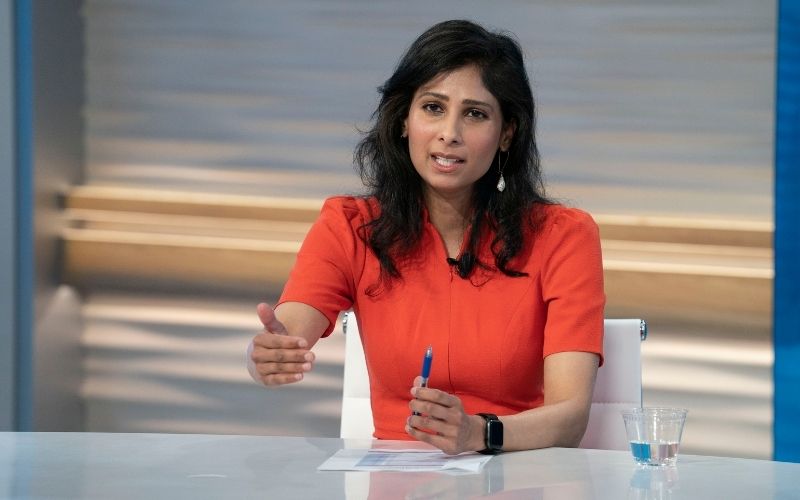
The global recovery continues but momentum has weakened, hobbled by the pandemic, IMF Chief Economist Gita Gopinath writes in a new blog on the latest World Economic Outlook. Compared to our July forecast, the global growth projection for 2021 has been revised down marginally to 5.9% and is unchanged for 2022 at 4.9%. However, this modest headline revision masks large downgrades for some countries. The outlook for the low-income developing country group has darkened considerably due to worsening pandemic dynamics. The downgrade also reflects more difficult near-term prospects for the advanced economy group, in part due to supply disruptions.
Learn more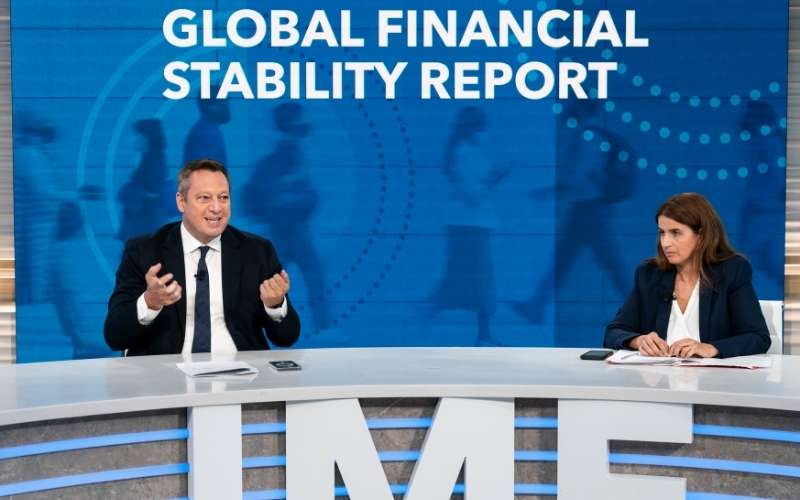
Amid the prolonged and painful pandemic, risks to global financial stability have remained contained—so far. But with economic optimism fading, and with financial vulnerabilities intensifying, this is a time for careful policy calibration, IMF Financial Counsellor Tobias Adrian writes in a new blog on the release of the latest Global Financial Stability Report. Uncertainty is especially intense because of the persistent pandemic-stricken atmosphere where society confronts the challenges inherent in “the three Cs”: COVID-19, crypto, and climate change.
Learn more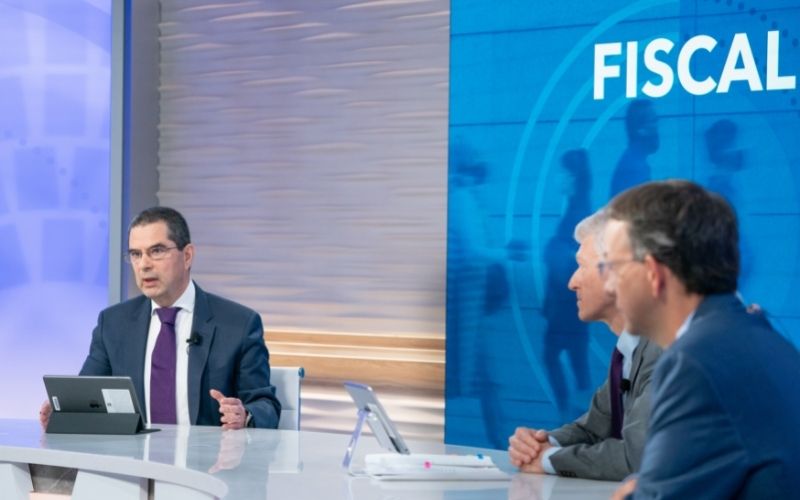
The pandemic will leave a lasting mark on inequality, poverty, and government finances, suggests the IMF's Victor Gaspar and his coauthors in a new blog based on the recently-released Fiscal Monitor. The global pandemic has trigged a 14% jump in global debt, to a record high of $226 trillion. In advanced economies, fiscal policy remains supportive of economic activity and employment but in emerging markets and low-income developing countries the crisis is expected to have long-lasting negative impacts and lead to a reduction in fiscal revenues relative to pre-pandemic trends.
Learn more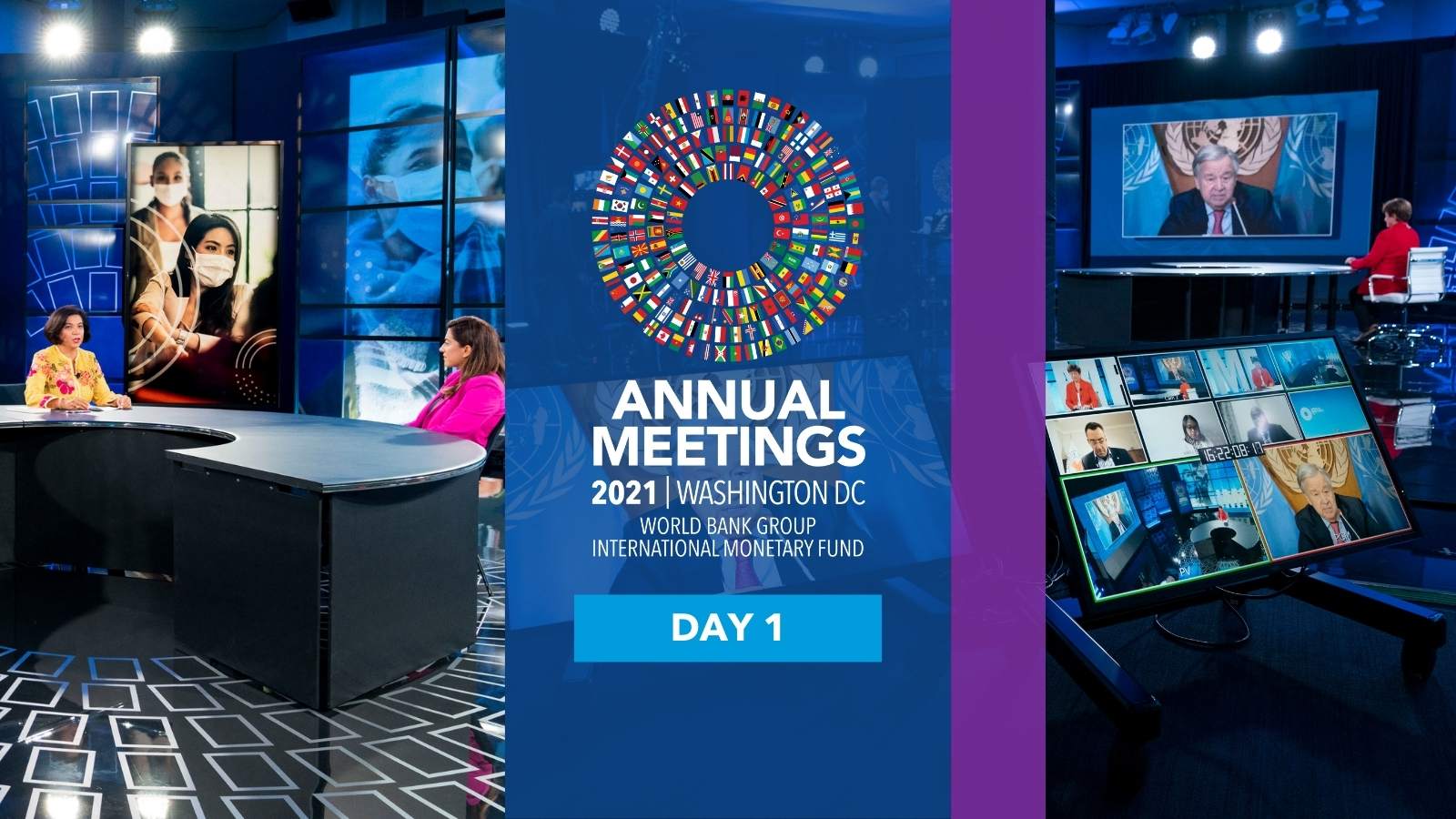
We explore more equitable workplaces for women. We look at how Costa Rica and Sudan navigate their path to recovery, assess the impact of the pandemic on fragile and conflict-affected countries, and more.
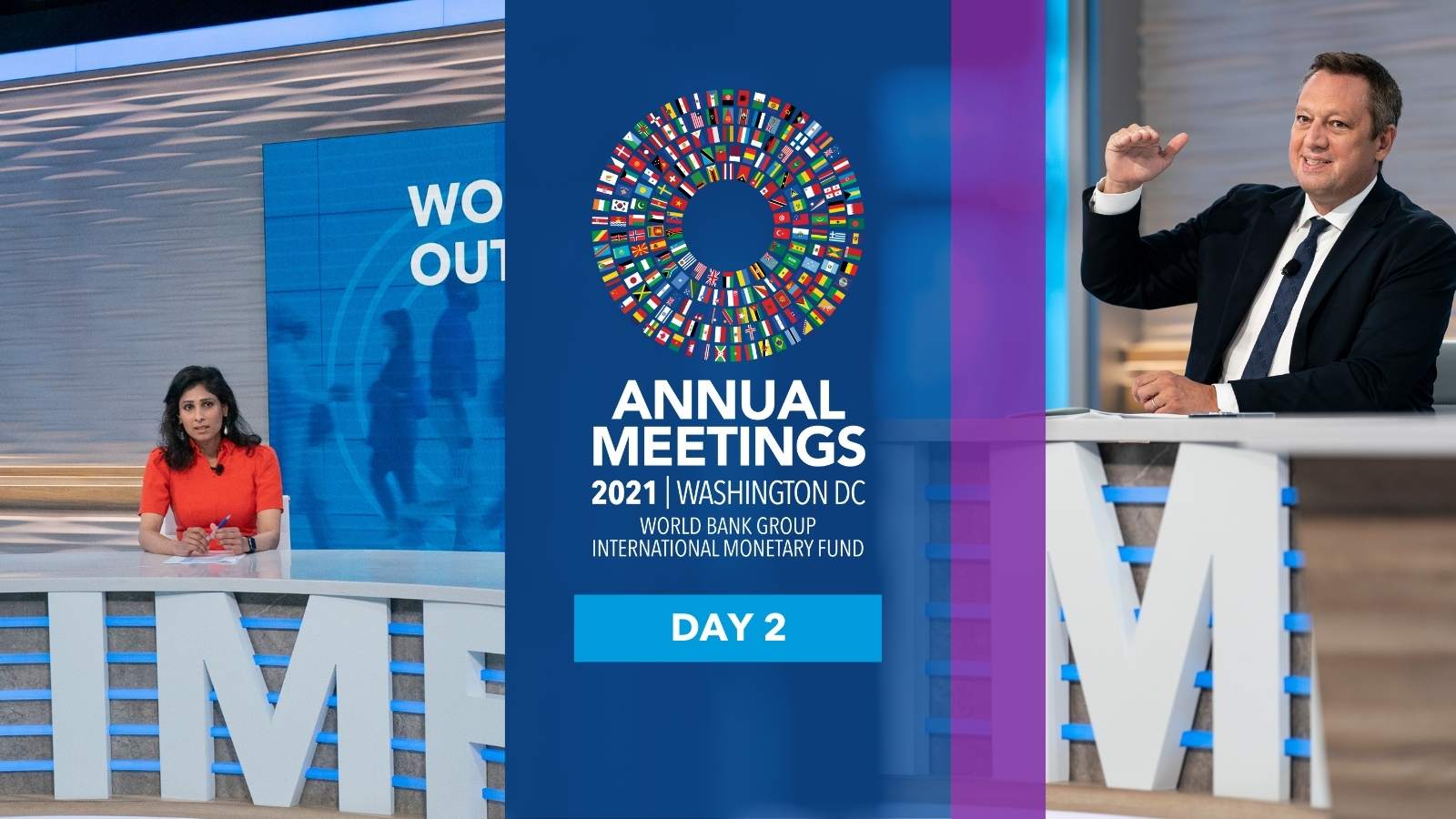
We learn there's more behind the numbers in the World Economic Outlook; how COVID-19, crypto and climate change are fueling uncertainty around global financial stability; an effort to end the pandemic; and more.
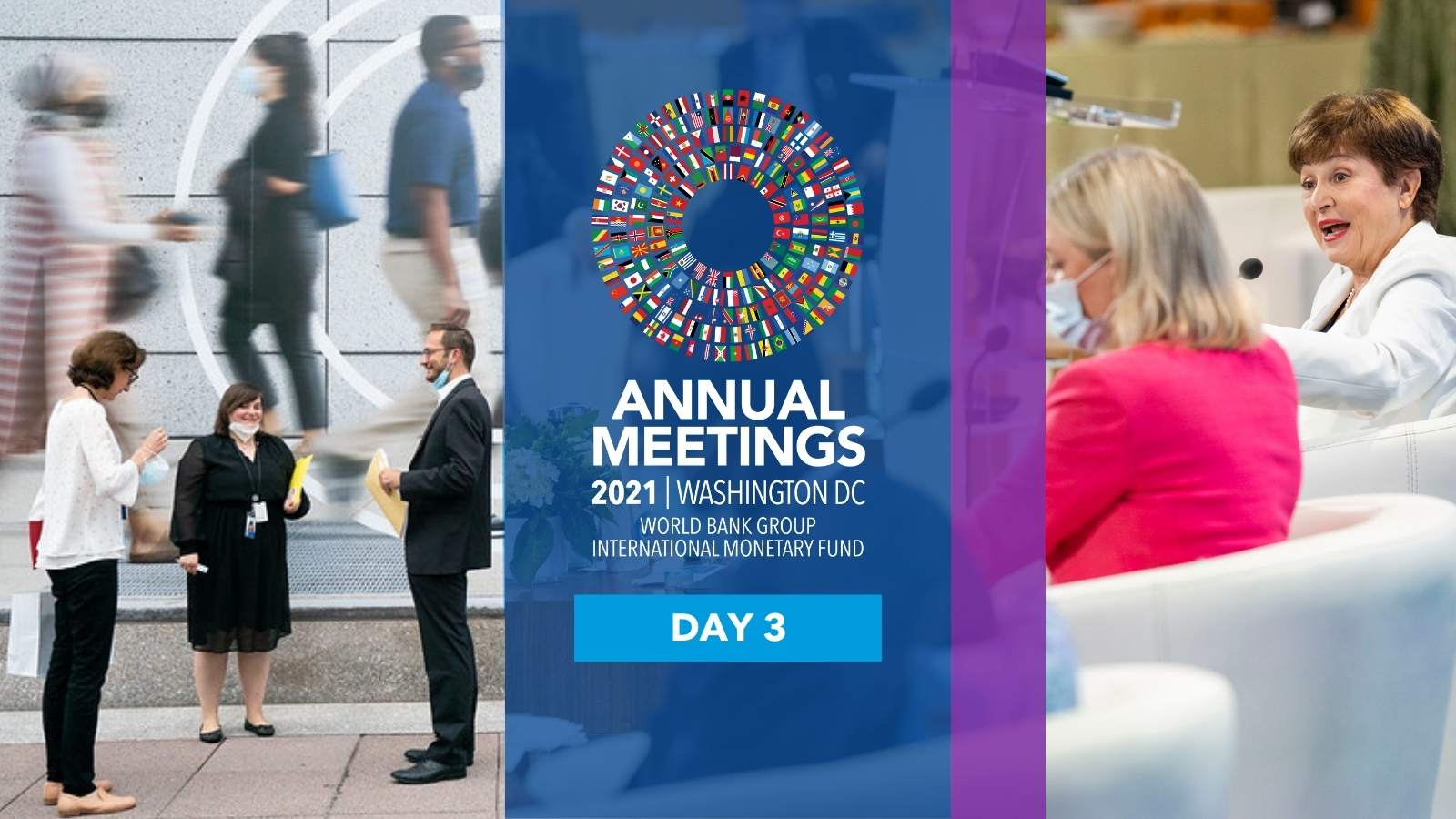
We examine the impact of the pandemic on balance sheets around the world; what policy action is needed to control the pandemic, limit scarring, and transform the global economy; spotlight our Analytical Corners; and more.
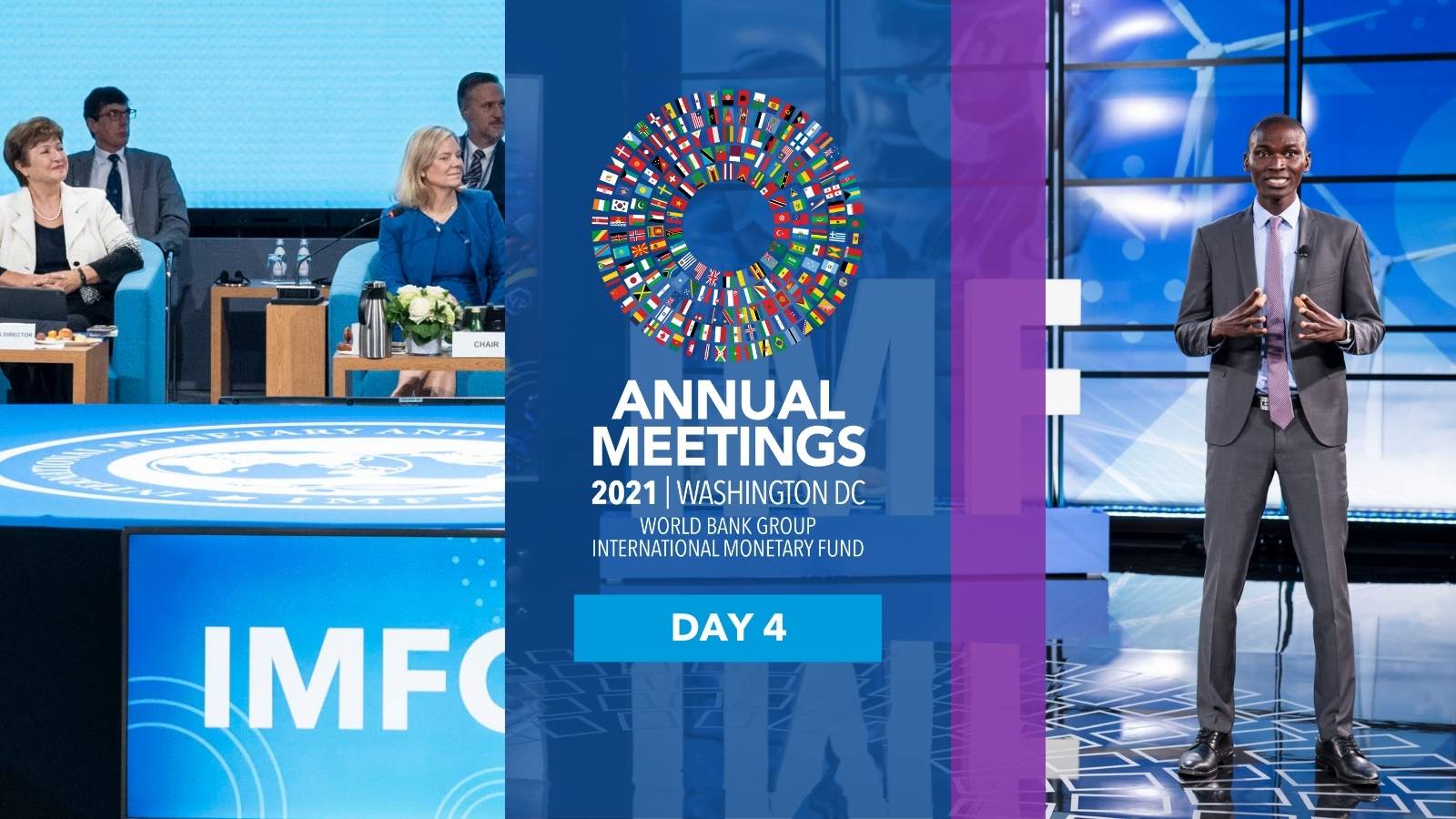
We learn about the outcome of the latest meeting of the International Monetary Financial Committee, the importance of resilience to the global recovery, what tools can help countries with a green transformation, and more.
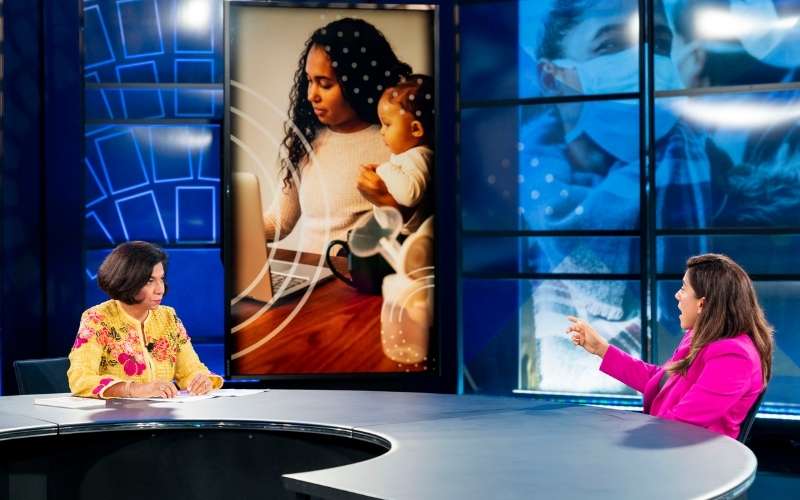
“You don’t value what you don’t pay for and so many mothers are treated like martyrs. We’re doing the unpaid work and we’re not being paid for it. That work is not being valued and no one seems to care,” said Reshma Saujani, founder of the Marshall Plan for Moms, a plan to support mothers through direct payments and other polices. She spoke at the IMF Inspired event on Monday.
Roughly 54 million women left the workforce globally because of the pandemic. In developing countries, Saujani stressed the need to increase cash payments to women, the need for financial support for healthcare and childcare, and shifting the conversation on gender equality in the home.
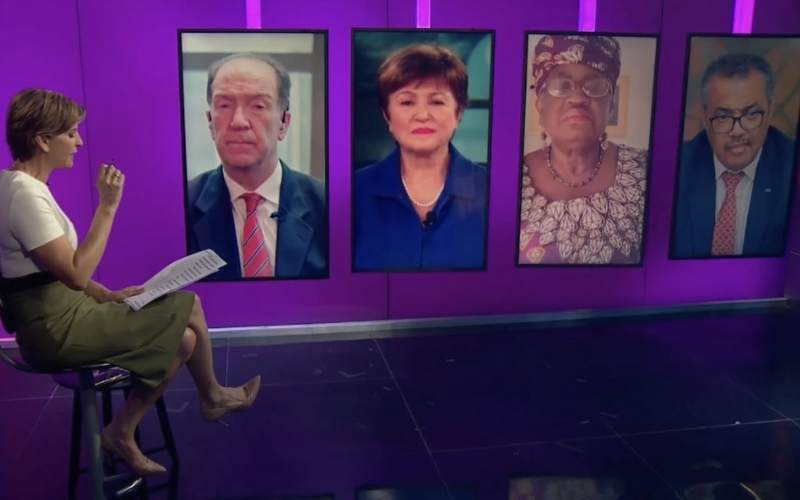
The heads of the IMF, World Bank Group, World Health Organization and World Trade Organization convened today to discuss accelerating global access to vaccines, therapeutics, and diagnostics, and how to measure this progress. Delivery of existing vaccine production is key to improving vaccine rates in areas of the world in need, particularly sub-Saharan Africa. All four organizations support a plan that would vaccinate at least 40% of the population in all countries by the end of 2021, but with rates in many countries still in the single digits, a challenge remains.
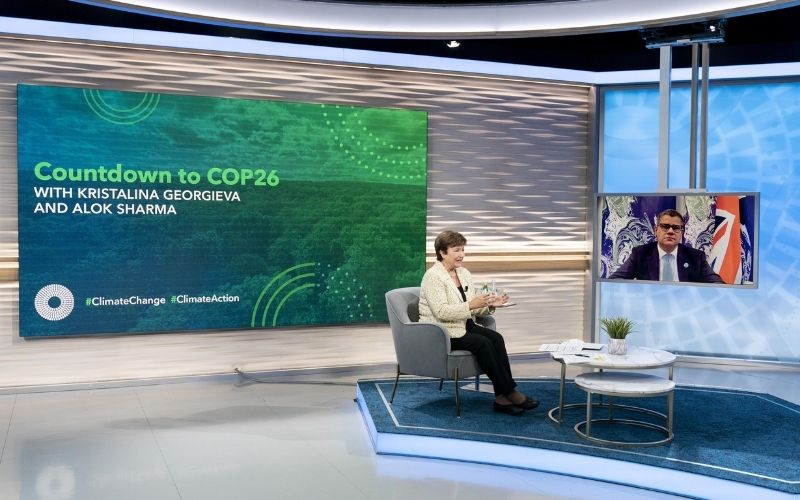
The UN Climate Change Conference (COP26) starts at the end of the month, presenting a pivotal moment for countries to solidify a strategy to tackle climate change. In today's seminar with IMF Managing Director Kristalina Georgieva, COP26 President Alok Sharma said more work needs to be done to avert a catastrophic rise in global temperatures. Sharma has made four consistent asks to country officials: countries need to step forward with ambitious plans to cut emissions and reach a net-zero emissions goal by 2050; developed nations need to step up and provide the $100 billion per year in financing to help developing countries fight climate change; set out plans for climate change adaptation; and agree to the final outstanding rules of the Paris Agreement.
Don't miss Sharma's article in our latest issue of Finance & Development Magazine where he discusses humanity's "golden opportunity" to pursue a green, inclusive and resilient recovery.
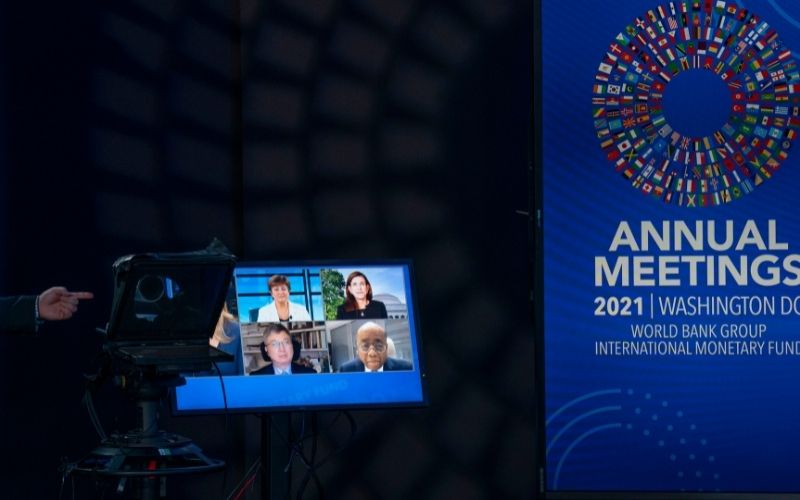
Against a complex scenario of uneven economic recovery and difficult policy tradeoffs, international cooperation is more important than ever to tackle shorter- and longer-term challenges, including ending the pandemic everywhere and promoting transformative reforms for a greener, digital future. IMF Managing Director Kristalina Georgieva joined a panel for a debate on the global economy. “We are now seeing three problems looming bigger than in the previous forecasts: divergence, inflation and debt levels," she said. Georgieva made an appeal for a more comprehensive approach to resilience in the form of more resilient people, a resilient planet and resilient institutions.
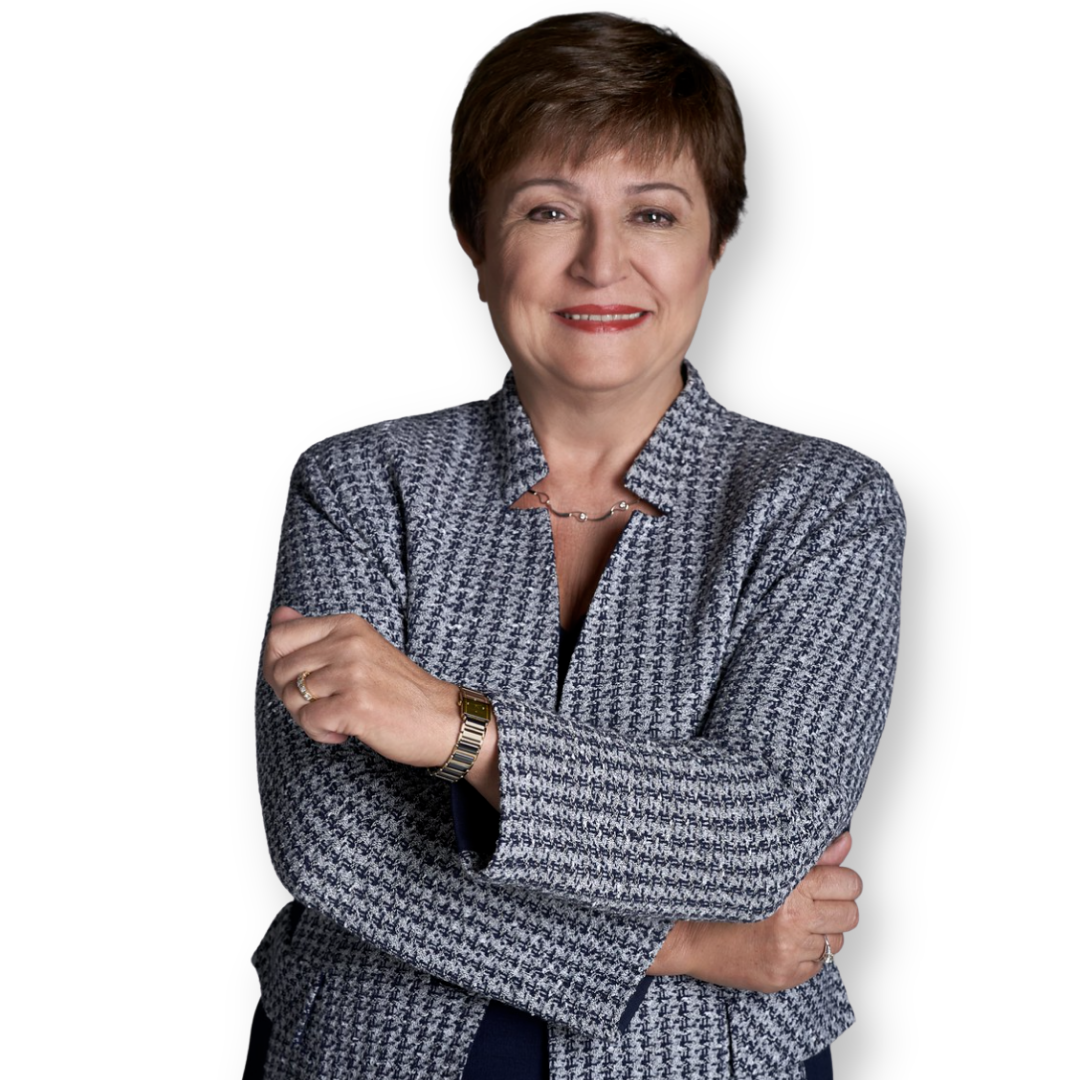
We are faced with some of the most complex policy choices, the most difficult trade‑offs in decades. How we make them will have profound impact for years to come.
IMF MANAGING DIRECTOR KRISTALINA GEORGIEVA
IMF Chief Economist Gita Gopinath highlighted that the top policy priority is to vaccinate at least 40% of the population in every country by end-2021 and 70% by mid-2022.

AN IMF staffer makes sure all safety protocols are implemented before the IMFC meeting.
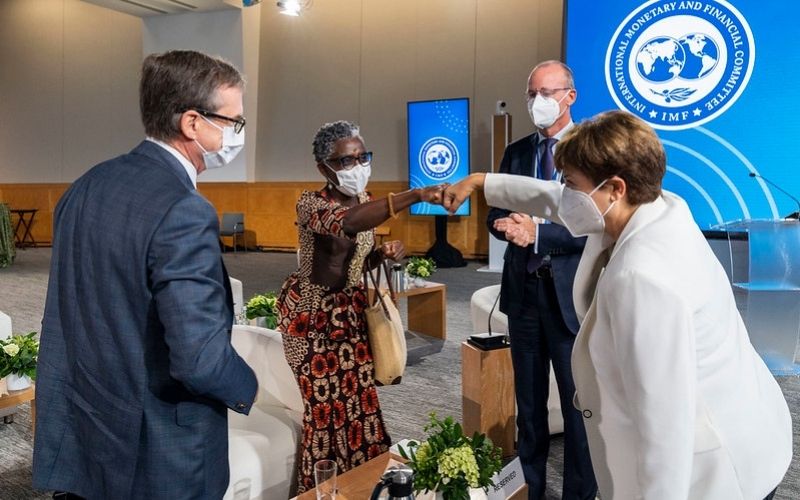
Deputy Managing Director Antoinette Sayeh and Managing Director Kristalina Georgieva fist bump after A MEETING ON TUESDAY.
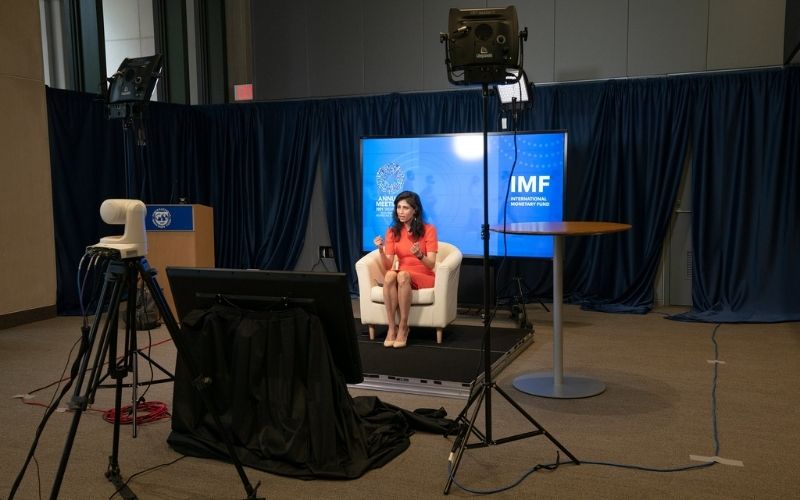
Chief Economist Gita Gopinath talks with the press after the RELEASE OF THE World Economic Outlook,
Cutting-edge research and analysis of economic, finance, development, and policy issues shaping the global economy.